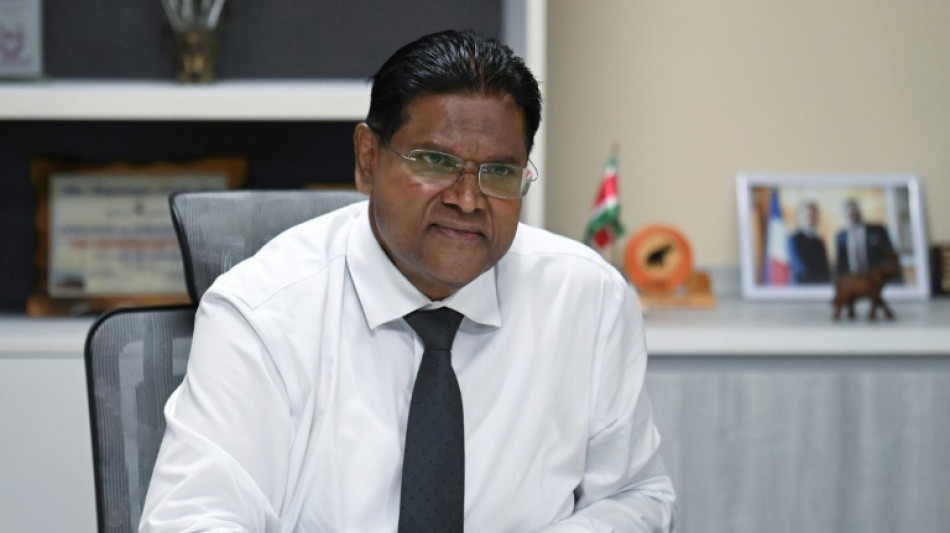

President vows oil won't threaten Suriname's carbon negative status
Suriname President Chan Santokhi has vowed days ahead of elections that his country will maintain its rare status as a carbon negative nation, despite plans to exploit massive oil reserves.
Voters head to the polls on Sunday to decide who will oversee output from recently discovered offshore crude deposits, which have the potential to transform South America's smallest nation.
There will be "a huge amount of income for the country" once drilling gets underway in 2028, Santokhi told AFP in an exclusive interview.
"That money will be used for the transition towards the green energy which we need, also because we know the fossil (fuel) energy is limited. It will be gone after 40 years," he said Thursday in the capital Paramaribo.
Suriname is rich in biodiversity and 90 percent of its territory is covered by the Amazon rainforest, allowing the country to absorb more carbon pollution than it gives off.
Santokhi pledged to "protect our forests" and vowed "we will remain carbon negative" despite the oil output.
"It's possible that we can increase the (oil) production based on high tech, based on modern technology, based on limiting the emission and to stay carbon negative," he said.
Experts say Suriname stands to make billions of dollars in the next 10 to 20 years from exploiting its oil reserves.
The country is battling high debt, rampant inflation, and poverty affecting nearly one in five of its 600,000 residents according to the World Bank.
While it emerges from its long economic crisis, voters are tasked with picking 51 lawmakers on Sunday before parliament decides on the next president.
Santokhi is eligible for a second term but pollsters are not choosing a favorite, with no single party clearly in the lead.
G.Goel--MT




